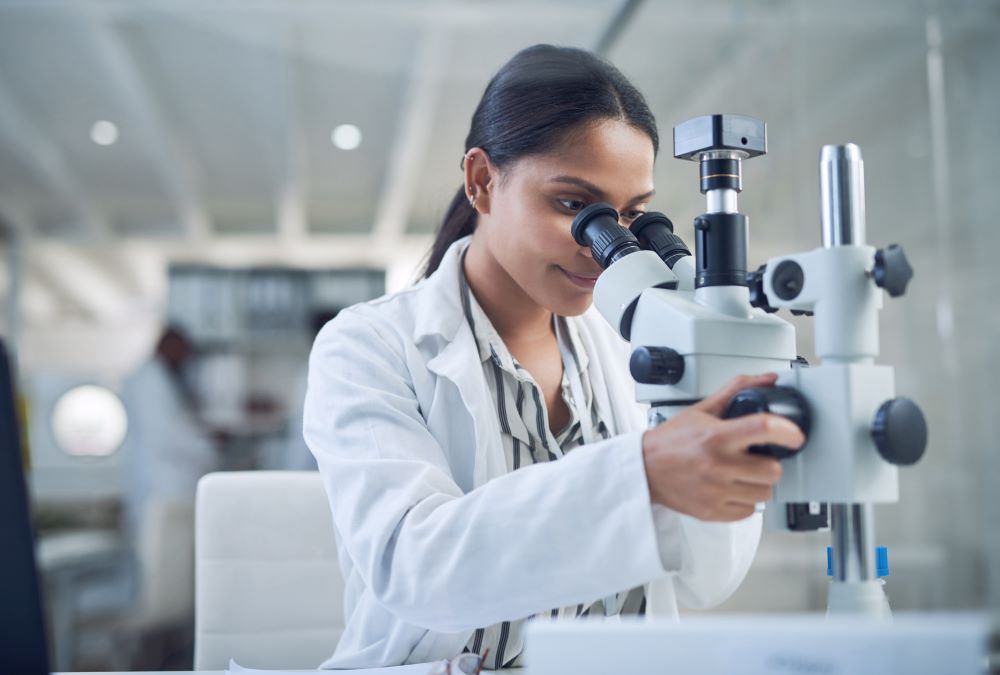High purity water is used in pharmaceutical and research laboratories for a range of life sciences and molecular biology applications. Below, we explore various use cases to demonstrate why and how it is essential for their successful completion.
Critical Cell and Tissue Culture
Cell culture involves growing cells in artificial environments, with controlled temperature, oxygen, and carbon dioxide levels. For growth, cultured cells require constant nutrients and ultrapure water to avoid contamination.
Water purification systems help laboratory workers minimise contamination and achieve the high purity water requirements for cell growth. Potential harmful contaminants include:
- Bacteria: Water containing bacteria causes the decrease of nutrient levels, the increase of toxic by-products and contamination of previous pure cultures. Water consisting of organic compounds can also lead to bacterial growth.
- Ions: Ionic contaminants can be present in untreated water. Purifying the water is necessary to limit heavy metals as they can be cytotoxic to a range of cell types.
- Endotoxins: Water purification systems can remove endotoxins, which affect different cell types by stimulating macrophages and mononuclear phagocytes, releasing pro-inflammatory cytokines. This can negatively affect cell growth and function.
Ultrapure water, Type I, is needed for processes like mammalian cell culture and plant tissue culture. Type II water is sufficient for bacterial cell culturing as it’s less sensitive.
DNA Sequencing
DNA sequencing involves three stages: the generation of DNA fragments, fragment separation and detection. High purity water is used for DNA sequencers and should meet stringent standards. Below are the principal water contaminants removed for DNA sequencing.
- Nuclease: Nuclease contamination can cause degradation of DNA during DNA sequencing. Removing nuclease involves using ultrafiltration devices or installing ultrafiltration cartridges into the water purification system.
- Organic Content: Water containing organic content interferes with DNA sequencing and damages the gel electrophoresis process. Large organic acids can co-elute with DNA fragments and disrupt polymerase efficiency.
- Ions: Ions must be removed to prevent inhibition of the polymerase. Water purification systems help provide water with high resistivity and low ionic content.
- Bacteria: Bacteria in water can degrade the nucleic acid, interfere with electrophoresis separation, and release harmful ions and organics. To remove bacteria, use water purification systems comprising membrane technologies and microfiltration.
In Vitro Fertilisation (IVF)
In vitro fertilisation (IVF) is part of assisted reproductive technology (ART), which includes a range of infertility treatments. High purity water is essential in culturing embryos for ART treatments as the quality of water can affect the success rate of IVF procedures. Impurities that should be removed include:
- Ions and Heavy Metals: Ions and heavy metals can be toxic for the embryo and spermatozoa. To avoid this, media supplementation can be used but doesn’t guarantee total protection from toxic substances. Water with low ion levels and a resistivity of 18.2MOhm.cm is recommended.
- Bacteria: Bacterial endotoxins may cause embryo fragmentation and suppress embryonic development, potentially leading to low pregnancy rates. Reducing bacterial levels involves purifying the water through reverse osmosis and ultrafiltration cartridges.
- Organics: Unpurified water can contain organics, like pesticides and endocrine disrupters, which can negatively affect IVF treatment. Water purifications systems and processes are used to reduce organic compounds.
Water Purification Solutions
To achieve high purity water, Evoqua provides a range of water purification systems, designed to meet exacting performance criteria, including:
- Protegra RO EDI systems - Delivers consistently high-water quality without the use of chemicals.
- Ultra Clear™ TP ED Ultrapure Water Systems: precise and volume-controlled dispensing of your ultra-pure water for flows up to 2 l/min - suitable for all research laboratory applications.
Conclusion
Due to many applications requiring high purity water, water purification systems are in high demand and can provide water quality that meets the exacting standards for laboratories. Water containing contaminants and impurities can jeopardise the success of applications, as well as wasting time and money. Therefore, investing in efficient water purification systems can prove productive, time-efficient and cost effective.

